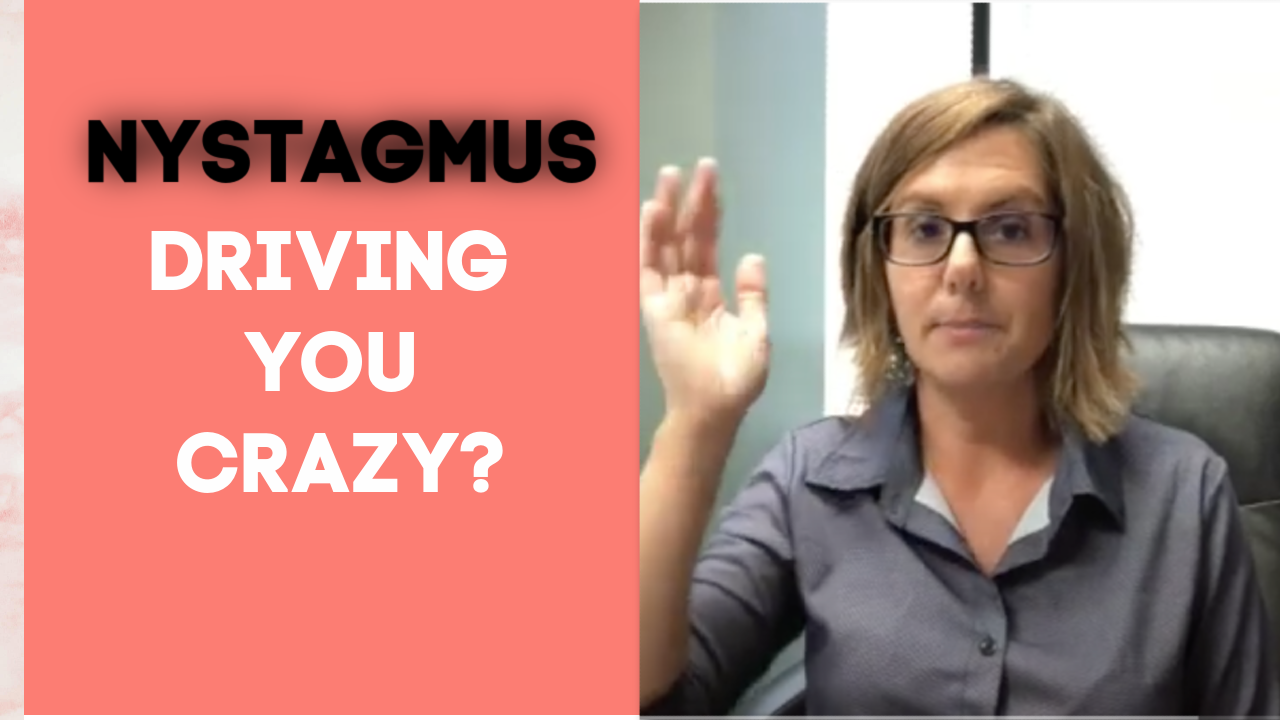Nystagmus is a vision condition that can cause the eyes to make repetitive, uncontrolled movements, often resulting in reduced vision and depth perception. If a patient has Nystagmus, it can often affect balance and coordination. If you or a loved one is noticing involuntary eye movement, dizziness, and lack of clarity or reduced vision including nighttime vision problems or light sensitivity, it’s time to contact Vision For Life. Keep reading or watch this video.
Eye movements typical with Nystagmus include eyes that move up and down, side to side, or circular movements. Because of this, it will be difficult for the individual to steadily view objects. Side effects may also include the individual holding their head in uncommon ways to help them compensate for their lack of seeing things clearly. Nystagmus can be a symptom of underlying medical conditions or other related eye issues. If the individual with Nystagmus is tired or stressed, it tends to make the condition worse.
What Causes Nystagmus?
Many times, Nystagmus is caused by a neurological problem present at birth. It can also develop a bit later in life and in early childhood. Older individuals may acquire Nystagmus due to a stroke, disease, brain tumor or trauma. Multiple sclerosis may also cause Nystagmus. Other causes may include inherited cataracts, inner ear irritation, some medications, central nervous system diseases like Parkinson’s Disease, or even lack of developmental eye control as a child.
Classifications of Nystagmus.
There are different classifications of Nystagmus as well as subtypes. The two types of Nystagmus are called jerk (also known as vestibular) or pendular (referred to also as optokinetic). If a patient has pendular Nystagmus, torsional, horizontal, vertical and a combination of eye movements can be present. Jerk Nystagmus is usually a slow drifting of the eyes in one direction and then repeat movements corrected by faster ones in the reverse direction.
Nystagmus can also be congenital, which means it was diagnosed at birth or soon thereafter. Another type is called manifest, which means that the condition is there continuously. If the condition is latent, it means the individual will only notice it when viewing something in a certain position (looking at something to the left, for example). Nystagmus may also be manifest latent, meaning that the condition is there all of the time but can be worse when the eye is covered. Acquired Nystagmus is a result of an occurrence later in life, like injury or disease.
How is Nystagmus Diagnosed?
Nystagmus can be diagnosed by contacting Vision For Life so we can arrange for a comprehensive vision examination. We will use visual acuity techniques to identify the extent in which the patient’s vision is being affected. Tests will include analyzing how the eyes are focusing, working and moving together. If Nystagmus is determined to be caused by an underlying medical condition, we may refer the patient to their physician or another medical specialist for further testing.
Nystagmus Treatments at Vision For Life.
Vision For Life has treatments for Nystagmus that can be life-changing for patients suffering from the condition. No matter what may have caused Nystagmus to happen, we can help. We have made a positive difference in our patient’s lives with a personalized treatment plan. One beneficial treatment is to treat the patient with syntonic or photo-syntonic light therapy. This will slow down and also decrease the patient’s Nystagmus symptoms by 80-90%. To learn more, watch this video.
At Vision For Life, we can help our patients improve their vision and give back their ability to focus. With our personalized therapy, we can teach our patients how to align and use their eyes together once again. Say “goodbye” to that feeling of motion sickness, dizziness and more by contacting Vision For Life! You can receive relief from Nystagmus! If you or someone you love has symptoms, contact Vision For Life at (618) 288-1489 or visit us online at https://visionforlifeworks.com/. Nystagmus can be improved considerably with vision therapy, relieving your symptoms and improving your quality of life.
